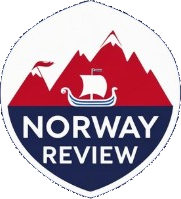Advertiser Content
Green List raises important questions about Universitas’ advertising practices. Here are my responses.
Oskar Heggernes from Green List at the University of Oslo has posed some pressing questions about the ethical boundaries of Universitas’ advertising practices. Among other points, he queries how we can critique Equinor while simultaneously accepting funding from them. He also articulates concerns about our efforts to secure support from the Norwegian Welfare Board. Let’s address these questions systematically.
The question of which advertisers are deemed “ethically responsible” is ultimately the responsibility of the current editor. This principle is clearly laid out in the Vær Varsom and the Editor’s posters, frameworks to which all editor-controlled media, including us, must adhere. As the present editor, I believe it’s essential not to impose my views on my successors; therefore, we will not instate any boycotts against specific advertisers. Our commitment to press freedom outweighs the allure of symbolic politics.
This leads us to Heggernes’ other points. A reputable newspaper must maintain independence, irrespective of the sources of its advertising revenue. He finds it “ironic” that we take a critical stance towards Equinor while receiving funds from them. However, this isn’t irony; it is a fundamental principle of press freedom. By refusing to blacklist any specific advertisers, we preserve our neutrality, enabling us to conduct critical journalism. If we were unable to report critically on Equinor because of our financial ties, we’d be flirting with corruption.
Had we not been able to write critically about Equinor because we receive money, it would have been corruption.
Turning to our endeavors with the Norwegian Welfare Council, it is indeed true that we have grappled with a difficult financial landscape in recent years, which limited our ability to adequately pursue funding from the Council. However, we have embarked on a significant effort over the past eighteen months to reverse the trend. I’m pleased to report that we are no longer facing a continuous deficit; instead, we are now operating profitably.
Heggernes suggests that we could garner more support if we invested additional effort into our outreach to the Welfare Council. While there may be some truth to that claim, yesterday’s allocation meeting illustrated a level of randomness in the decision-making process. For instance, when representatives from the council proposed cuts of NOK 432,000 to Radio Nova and NOK 150,000 to Universitas on the very same day, it underscored the need for us to rely on more than just the Welfare Board for our funding.
Read also:
Stone in a Glass House, Universitas?
We Are Not Activist Ink

